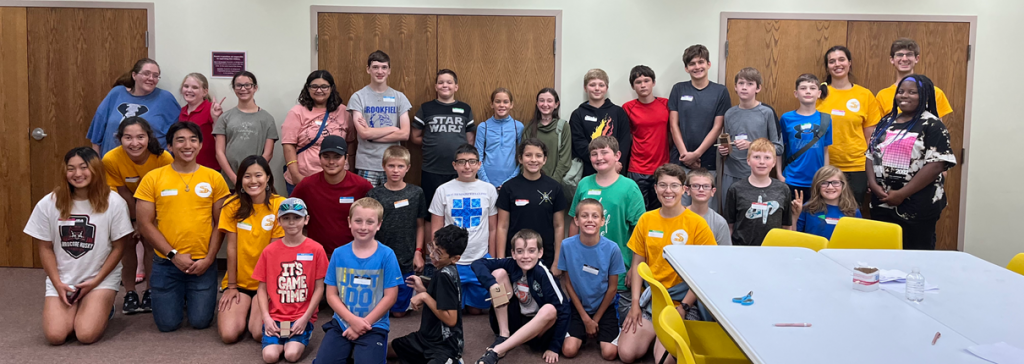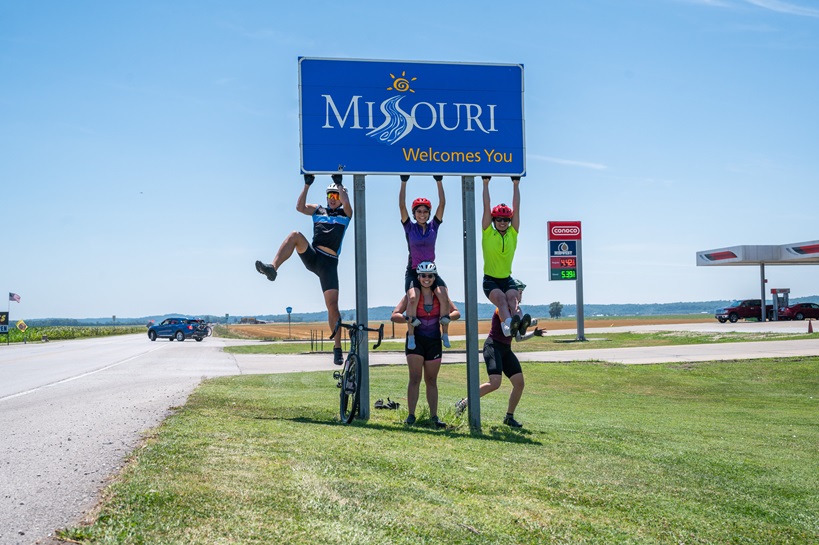
MIT Spokes: Biking Cross-Country to Deliver STEM to Rural Students
MIT Spokes is a student-led organization that brings STEM festivals to underserved communities in rural areas. While giving rural students an exciting taste of STEM is already something remarkable in and of itself, it’s also the way these students travel to these communities that catches the imagination: they are traveling by bicycle! It’s a long hard haul each summer, at a time most college students would be kicking up their heels and having a fun break from their studies. But MIT Spokes participants have a passion for STEM, and want others—especially those who would otherwise have no interest in STEM, to catch their enthusiasm.
What do the MIT Spokes team members get from this experience? A sense of accomplishment. And that’s about it. At most, participation in the program might yield a brief mention on a resume.
It seems to us that MIT Spokes is a beautiful example of selflessness on behalf of students who aren’t getting nearly enough STEM to pique their interest in further study of STEM subjects, or a career in STEM. We hope our small grant helps further the mission of MIT Spokes, and maybe even help inspire others to follow the good example of these remarkable college students.
We put some questions to Lucy Nester, team member of MIT Spokes 2023, to find out more about this work:
Kars4Kids: When was MIT Spokes founded, and whose idea was it to begin with?
Lucy Nester: MIT Spokes was founded in 2013, so due to missing 2020 and 2021, the 2024 team will be the 10th team! One thing that makes Spokes so unique is that each year the team consists of entirely new members. We don’t know who exactly started the team, but we do know our mission has remained essentially unchanged even 9 teams later.
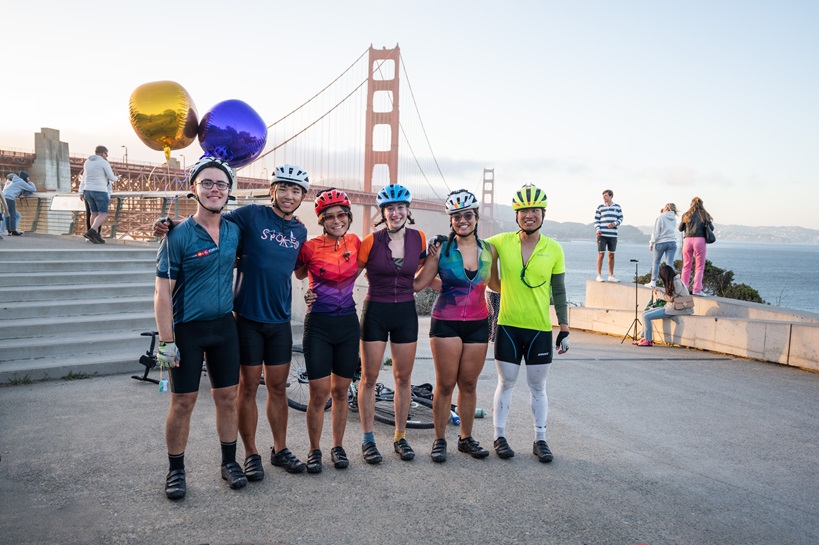
Kars4Kids: MIT Spokes serves students in rural areas. Don’t students in rural areas get the same public school education as any other students? What do you offer them that they currently lack?
Lucy Nester: While there are still public schools in rural areas, the funding and resources of those schools vary significantly across the country and across different demographics. MIT Spokes offers a hands-on curriculum involving labs, experiments, and building projects which help students learn new concepts in an unconventional way. We only teach for a day or two in these communities, so we obviously don’t seek to replace conventional education; instead, we hope to supplement that traditional education with activities that regular classrooms might not do and to spark curiosity about how knowledge gained through school is applied to cool things in the real world. We also think it’s important for these students to get to meet and work with students from a prestigious university like MIT to show that they can do this too. Coming from a somewhat rural background myself and having never met anyone related to MIT before, I literally arrived on campus as a freshman. I think it’s so important for young students to see that MIT students are people too and that some of them are like you.
Kars4Kids: The Spokes team travels cross-country by bike in order to deliver its free STEM workshops to kids across America. Why travel by bike? Wouldn’t a bus be faster and easier?
Lucy Nester: One of the core themes of Spokes is challenging convention and empowering students to try new things. Stereotypical nerds, scientists, and engineers are not seen as athletic or adventurous, and we want to challenge this idea by showing through our biking that nerds can be athletic, determined, and outgoing. Some of our workshops also involve asking students to get out of their comfort zone, be challenged, and try new things, and how can we ask that of our students if we don’t do it ourselves!
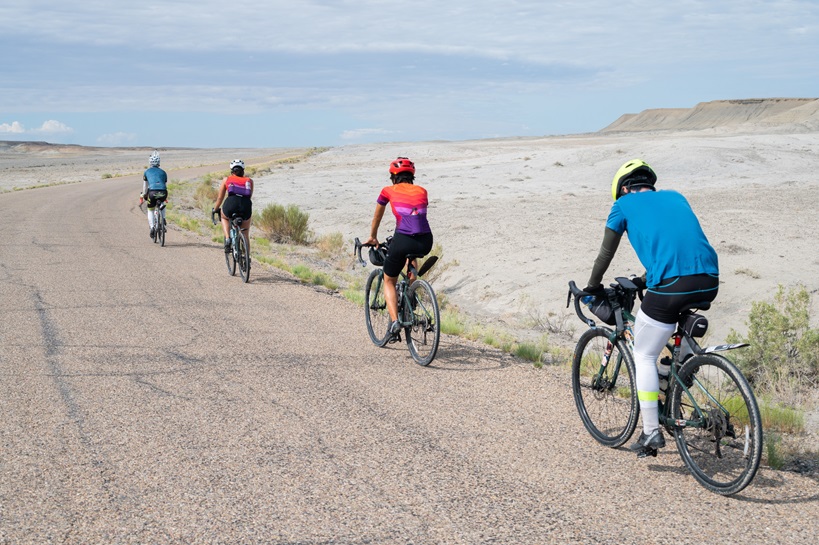
Kars4Kids: Your team offers some 10 learning “festivals” each summer. Can you tell us about these events? Does this mean you travel to a total of ten cities or towns?
Lucy Nester: A “learning festival” is our term for the educational workshops we run in communities we pass through. A learning festival is a one- or two-day event (lasting around 6 hours) where students rotate between different stations that are run by Spokes team members. Each of these stations has a different experiment or activity and teaches something new. We pass through many more than 10 communities during our trip, but learning festivals take a lot of planning and collaboration with local schools, libraries, and community centers, so the logistics of holding more than about 10 would be too taxing for our little team to manage (plus we need time to bike between the locations!).
Kars4Kids: It’s important to you that lessons are hands-on. Can you give us some examples of hands-on workshops? Why hands-on?
Lucy Nester: The 2023 team taught workshops that included making small electric generators, making polymers, cabbage juice chromatography, building spaghetti bridges, and learning 3D design and modeling. Every year the team chooses new workshops based on their own interests. Some highlights from past years include DIY circuits, fruit juice solar cells, DNA extraction, and coding. First and foremost, we want our students to have fun, so giving them new experiences and the chance to play with and explore science through these activities is always a central goal of workshop selection. We also want students to see these topics in a different context than the conventional classroom, so, rather than lecture, explain with pictures, or solve problems on paper, we let them explore and interact with the concepts themselves to understand how the theory of a classroom goes on to impact the reality all around us.
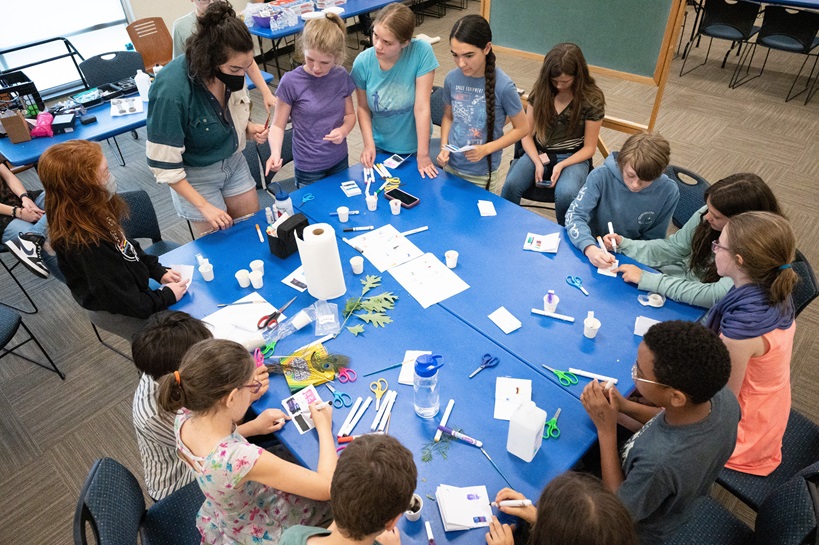
Kars4Kids: Do you always work the same communities? Is there good cooperation between Spokes and local educators and officials?
Lucy Nester: We have several communities that we’ve been collaborating with for a couple years, but the total line-up of learning festivals is a little different every year depending on changes to our route or timing. We couldn’t fulfill our mission without spaces to host us and people to inform their community about us, so our local hosts are essential. Each learning festival is a little different and the kinds of hosts vary too. We’ve been hosted by schools, libraries, community centers, home schooling groups, and even correctional facilities. Because we bring almost all of our own supplies and our festivals are free to all in the host community, the barrier to hosting Spokes is intentionally small, letting us reach a wide range of people.
Kars4Kids: MIT Spokes is a student-led initiative. Who is the typical student that joins the Spokes team? Do they receive some kind of academic credit for this work?
Lucy Nester: We’re a pretty diverse group of MIT students with team members ranging from freshman to fresh graduates, and everyone has their own unique reason for joining. I do think generally that we have a love of adventure and a passion for getting people excited about learning. Spokes members don’t receive any official academic credit or payment (other than keeping their own bike/equipment at the end), but we do get an amazing story and a summer full of fantastic memories!
Kars4Kids: Do you think that kids have certain preconceptions about what it means to be involved in STEM studies? How do you make STEM attractive to the students who participate in your workshops?
Lucy Nester: Yes, there are still some stereotypes about studying stem and Spokes definitely exists to challenge stereotypes about what a “STEM student” looks like. The stereotype that STEM students are reclusive, wimpy super geniuses is simply untrue, and the idea that studying STEM means you must give up on other passions is also false. Spokes members come from many different backgrounds and identities, and have diverse passions and interests outside of science. We’re not super athletes or super geniuses; we’re just people who love science and sharing it with others! Rather than focus on lots of math or theory, we focus on the applied side of stem and making these concepts as accessible and fun as possible.
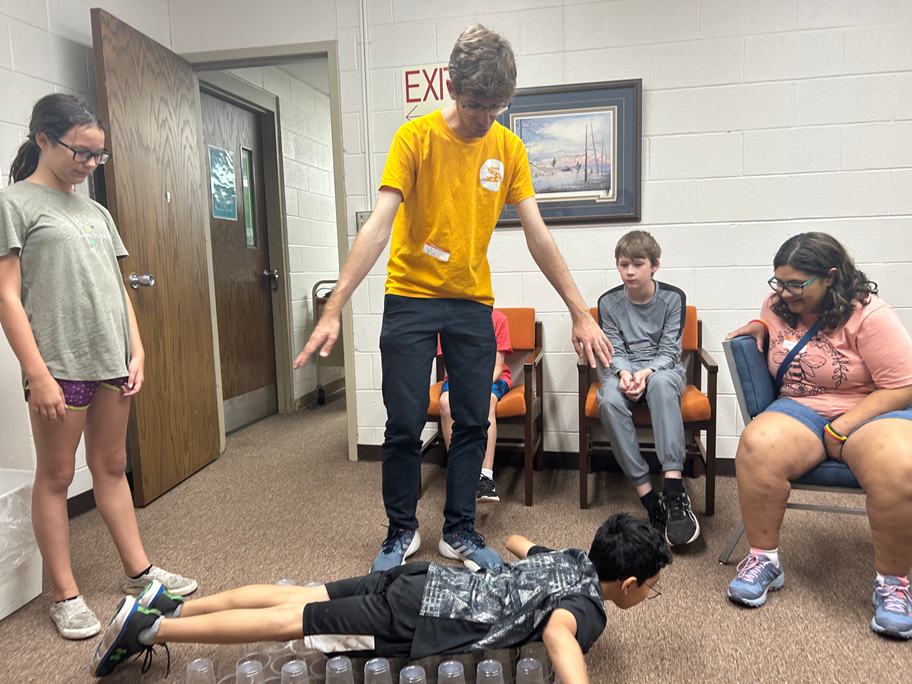
Kars4Kids: Aside from bringing STEM to the students you encounter, what do you hope to achieve? Are there other skills you hope to impart in these young students?
Lucy Nester: For me the biggest things I hope I imparted to my students were a sense of curiosity and the belief that they can do difficult things.
Kars4Kids: What’s next for MIT Spokes?
Lucy Nester: You’ll have to ask the 2024 team!
Rebecca Lizarde for MIT Spokes 2024: Spokes is run by a different group of students every summer, so Spokes 2024 is busy fundraising, route planning, and planning their learning festivals so they can continue Spokes’ history of success!
